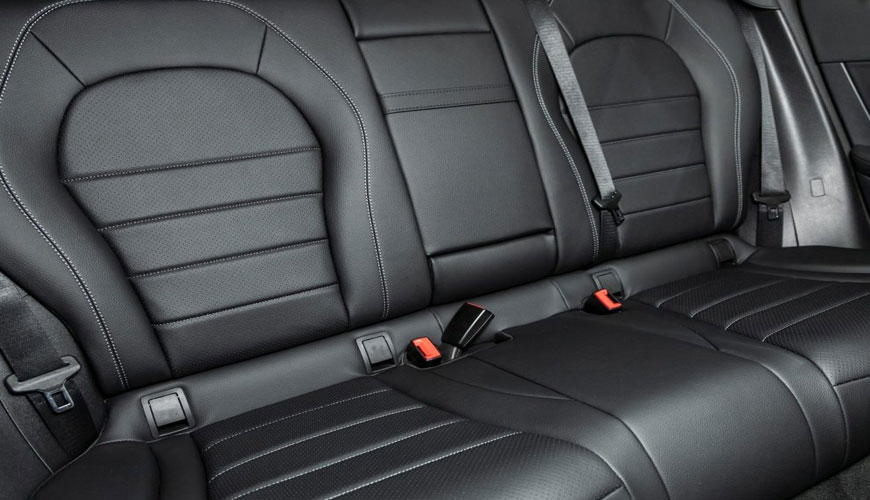

The “Renault D40 3004 Analysis of formaldehyde and other carbonyl compounds” standard developed by the French Renault automobile company describes a test method for the analysis of formaldehyde and other carbonyl compounds in passenger vehicle materials by liquid chromatography.

Formaldehyde is an organic compound. This compound is a pungent, colorless gas that spontaneously polymerizes into para-formaldehyde. It is stored mainly as aqueous solutions (formalin). It is the simplest of the aldehydes. Global production of formaldehyde, a precursor to many other materials and chemical compounds, is estimated at 12 million tonnes per year. It is mainly used in the production of industrial resins, for example for chipboards and veneers. Small amounts also occur naturally.
Formaldehyde can cause respiratory and skin irritation when exposed. Additionally, formaldehyde is classified as a carcinogen. Prolonged exposure may cause respiratory and skin irritation. Formaldehyde is the main compound most frequently found in exhaust gases in both hot and cold engines.
Compounds containing a carbonyl group are called carbonyl compounds. The carbonyl group is probably the most important functional group in organic chemistry. These compounds are an integral part of organic chemistry, and their primary members are called aldehydes, ketones and carboxylic acids.
In other words, a carbonyl group is a functional group that consists of a carbon atom double bonded to an oxygen atom and is divalent at the carbon atom.
In general, carbonyl compounds (aldehydes and ketones) are considered toxic air pollutants and carcinogens. Vehicle emissions are the primary source of carbonyls in outdoor air.
Chromatography is used to separate proteins, nucleic acids, or small molecules in complex mixtures. Liquid chromatography (LC) separates molecules in a liquid mobile phase using a solid stationary phase. Liquid chromatography can be used for analytical or preparative applications. Liquid chromatography method is also used to analyze formaldehyde and other carbonyl compounds in the materials used in the interior trim of vehicles.
In short, formaldehyde is toxic and classified as carcinogenic. Plastic-based materials containing formaldehyde as a synthesis component may cause off-gassing under certain conditions. Other carbonyl emissions (short-chain aldehydes and ketones) are also of potential concern, so their quantitative determination is the subject of various standards and test methods. To comply with occupational health and safety requirements, the automotive industry has published testing standards describing the analysis of these carbonyl compounds for motor vehicle interiors.
One of the most important methods is the analysis of formaldehyde and other carbonyl compounds in passenger vehicle materials defined in the Renault D40 3004 standard by liquid chromatography.
In the automobile market, textiles have become important parts to provide adequate comfort and decoration, but the volatile organic compounds usually found in automotive textiles have certain toxicity and can slowly evaporate into the air in vehicles. Aldehydes and ketones are the main volatile organic compounds in automotive textiles. These compounds are very harmful to human health and affect the sustainability of vehicles. Many testing standards are intended to identify volatile organic compounds in automotive.
To improve in-car air quality, it is necessary to test volatile organic compounds that evaporate from automotive textiles over time. Detection of volatile organic compounds should be carried out throughout the entire production process of automotive textiles, from fabric production to finishing and final products. In these tests, the real environment of textile use in vehicles is simulated and aldehyde and ketone content is determined.
Among the numerous testing, measurement, analysis and evaluation studies it carries out for businesses in various sectors, our company also provides liquid chromatography analysis services of formaldehyde and other carbonyl compounds in passenger vehicle materials within the scope of the Renault D40 3004 standard, with its trained and expert staff and advanced technological equipment. .
To get an appointment, to get more detailed information or to request an evaluation, you can ask us to fill in our form and reach you.